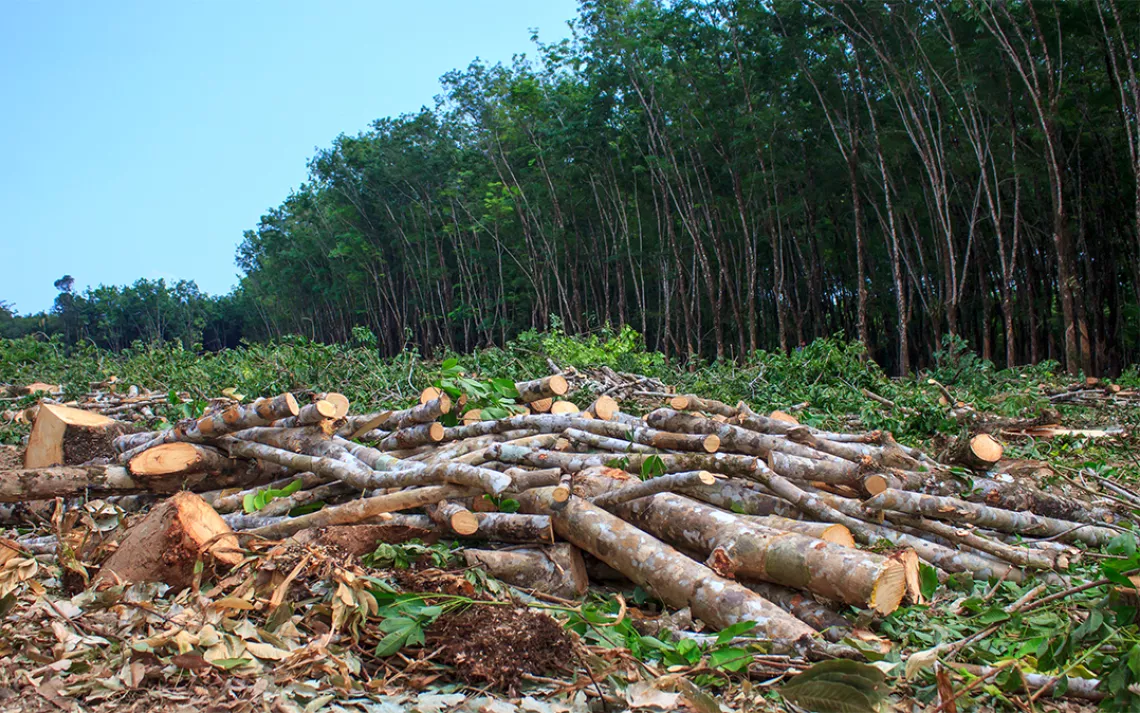Here are 5 No-Brainers for Helping Out Animals Near and Far
Easy steps any animal lover can take to give struggling species a hand

Photo by richcarey/iStock
December 28 is the 43rd anniversary of the Endangered Species Act. According to the Center for Biological Diversity, the act has been a huge success, saving at least 227 species from extinction. Yet worldwide, at least 16,306 species are endangered, and some of our consumer decisions here in the United States are having a huge impact on animals in remote corners of the world.
Here are five steps you can take to give animals near and far a fighting chance.
1) Avoid palm oil.
Palm oil is in about half of all packaged products sold in the supermarket and in many everyday items such as shampoo, detergent, and lipstick. It grows in tropical rainforests, and the clearing of trees for palm oil plantations has led to widespread deforestation, threatening species like tigers, orangutans, and elephants. Fewer than 400 tigers, for example, are clinging to existence in the remaining patches of forests on the island of Sumatra. Often palm oil isn’t clearly labeled, so acquainting yourself with its many names—sodium dodecyl sulfate, glyceryl stearate, sodium isostearoyl lactylate, elaeis guineensis—will help you know what to avoid. Also, search out products that have the RSPO or Green Palm labels on them, which means that they are made with certified sustainable palm oil.
2) Don’t buy products made with wood from rainforests.
Deforestation for the purpose of making wood products is also destroying the habitat of many species. You should avoid purchasing any furniture made out of merbau, sapele, wenge, ebony, Brazilian mahogany, Burmese teak, and teak in general, as these are all sourced from rainforests that are home to endangered species. Instead, be sure to buy wood with the FSC (Forest Stewardship Council) certification, or with the PEFC (Programme for the Endorsement of Forestry Certification) logo.
3) Recycle your electronics.
Chances are, you’re reading this on your iPhone. Do you know that it, and all your other electronic gadgets, contains a mineral called columbite-tantalite that’s mined in an area of the Democratic Republic of Congo where the Kahuzi-Biega National Park is located? The park is home to the mountain gorilla, whose population has plummeted to 130 as the ground has been cleared for mining operations. Fortunately, the mineral can be recouped when electronics are properly recycled. Also consider ways to slow down your electronics consumption. Do you really need the latest version of the iPhone?
4) Don’t eat unsustainably harvested seafood.
According to the World Wildlife Fund, 61 percent of the world’s commercial marine fish stocks are fully exploited, while 29 percent are overfished. Unwanted bycatch also continues to threaten many marine species. Avoid endangered species like bluefin tuna and North Sea cod, and seek out seafood labeled with the blue MSC (Marine Stewardship Council) logo. The Safina Center offers a helpful guide to which fish species in U.S. waters are endangered, and the Monterey Bay Aquarium’s Seafood Watch has this handy app for when you're in restaurants and grocery stores.
5) Don’t use herbicides or pesticides.
According to the Environmental Protection Agency, more than 2 billion pounds of pesticides are sold annually in the United States. Many herbicides and pesticides are toxic to both plants and animals, taking a long time to degrade and accumulating in soil. Pesticides threaten the survival and recovery of hundreds of federally listed species, such as the polar bear, mountain yellow-legged frog, coho salmon, delta smelt, and loggerhead sea turtle. The good news is there are some safer ways you can protect your lawn or garden from unwanted critters. Check out PETA’s guide to herbicide and pesticide alternatives. And of course, buy organic fruits and vegetables.
 The Magazine of The Sierra Club
The Magazine of The Sierra Club



